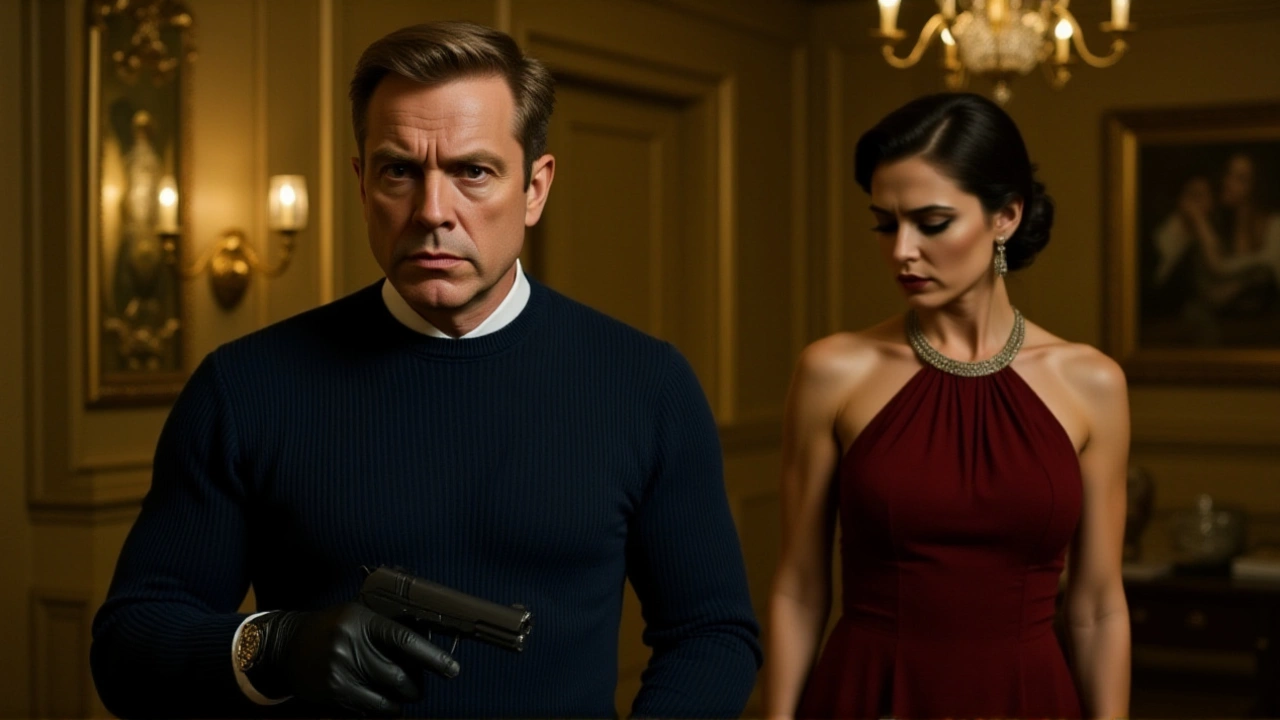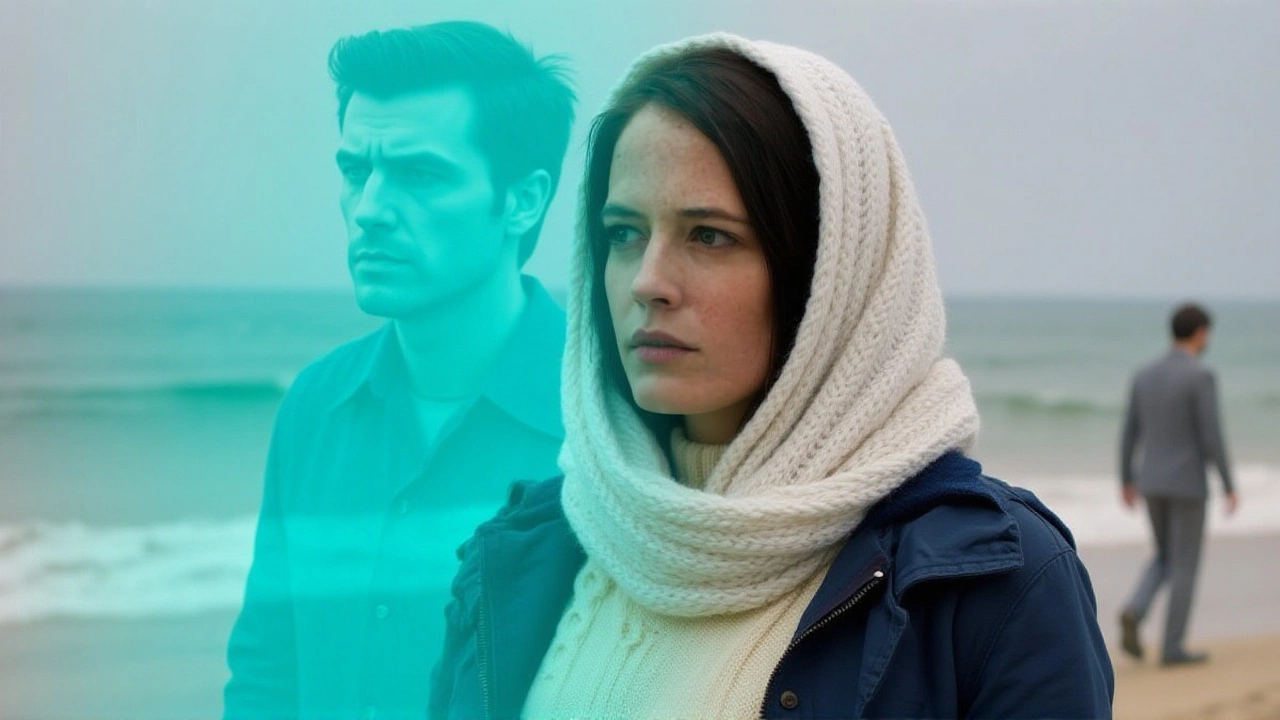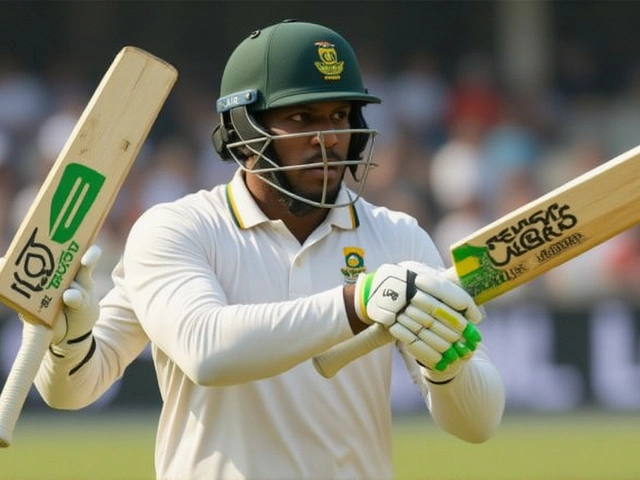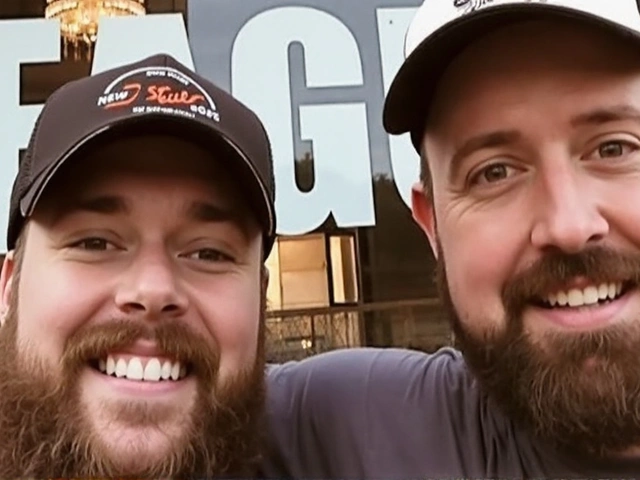When Eva Green stares into the camera in WombHungary, you don’t see grief. You see something colder, stranger — a woman who has turned loss into a laboratory experiment. Released in 2010 but resurfacing in 2025 as a cult talking point, Womb isn’t just sci-fi. It’s a slow-burn psychological autopsy of love, control, and the terrifying line between mourning and obsession. Directed by Bence Fliegauf, the Hungarian auteur whose name barely registers outside film festivals, the 107-minute film dares to ask: What if you cloned your dead lover… and raised him as your son?
What Happens When Grief Becomes a Science Project
Eva Green plays Rebecca, a woman whose world shatters when her childhood sweetheart, Matt Smith’s Thomas, dies in a car crash. Instead of therapy, candles, or journaling, she walks into a clandestine lab and requests a clone. Not a memory. Not a portrait. A biological duplicate — grown from his DNA, carried in her womb, born as her child. The film doesn’t flinch. No dramatic monologues. No villainous scientists. Just silence, medical equipment, and the quiet horror of a woman who believes love can be engineered.What follows is a 15-year timeline compressed into fragments: Thomas as a toddler clutching her leg, as a boy asking why he looks like his "father," as a teenager pulling away from her grip. Lesley Manville, in a haunting supporting role, plays a neighbor who sees the unease but says nothing. The film’s power lies in what it doesn’t explain. No legal battles. No media frenzy. Just Rebecca, alone with her creation, and the creeping realization that she’s not raising a son — she’s raising a ghost she refused to let go.
The Performances That Make It Unbearable
Most films about cloning lean into spectacle. Womb leans into stillness. Smith, in one of his earliest leading roles, doesn’t play Thomas as a copy. He plays him as someone slowly discovering he’s not supposed to exist. His eyes hold confusion, not rebellion. Green, meanwhile, doesn’t cry. She watches. She waits. She tightens her grip. When Thomas hits puberty and starts dating, her jealousy isn’t theatrical — it’s chillingly mundane. She cancels his plans. She questions his friends. She tells him, "You’re mine," like it’s a fact, not a plea.
Collider called it "a silent, uneasy feeling," and that’s exactly right. There’s no jump scare. No monster. Just the dread of realizing this woman has turned motherhood into possession. The film doesn’t ask if cloning is ethical — it assumes it’s already happened, and now we’re watching the fallout. And it’s worse than you think.

Why This Film Haunts People a Decade Later
Fliegauf has spent nearly 20 years making films that slip through the cracks of mainstream cinema. His 2004 debut Regen won at Cannes but played in three theaters in the U.S. His 2024 follow-up, Jimmy Jaguar, was described by Consequence - Music as "equal parts fascinating and frustrating" — the same words used for Womb. He doesn’t make movies for audiences. He makes them for the quiet, uncomfortable spaces between thoughts.
That’s why Womb is having a moment in 2025. In an era where AI chatbots mimic dead loved ones and digital avatars keep grief alive, the film feels prophetic. It’s not about the science. It’s about the human urge to cheat death — even if it means trapping someone in a role they never chose.
CBR called it "the most ethically slimy way possible" to cope with loss. IndieWire called Fliegauf "as far from the mainstream as you can get." But maybe that’s the point. He’s not here to comfort you. He’s here to make you sit with the question: Would you do it? And if you wouldn’t — why not?

What It Says About Motherhood Today
There’s a quiet revolution happening in how we talk about mothers. The "perfect mom" myth is crumbling. But Womb takes it further: What if motherhood isn’t about nurturing — but about ownership? Rebecca doesn’t want a child. She wants Thomas back. And she’s willing to erase his autonomy to get him.
It’s no accident that critics compare it to Mother! and Tusk. Those films don’t scare you with monsters. They scare you with the people you trust. Rebecca isn’t a villain. She’s a widow who never learned how to let go. And that’s what makes her terrifying.
The film’s final shot — Thomas, now a man, walking away from her house as snow falls — doesn’t end with a bang. It ends with a sigh. The kind you let out when you realize some wounds can’t be cloned. Some loves can’t be rewritten. And some mothers, however loving, become prisons.
Frequently Asked Questions
Is Womb based on a true story?
No, Womb is entirely fictional. But its themes echo real-world debates about cloning, grief technology, and digital afterlife services. In 2023, a South Korean company offered to create AI replicas of deceased relatives — a concept Womb predicted over a decade earlier.
Why did Bence Fliegauf choose to make this film?
Fliegauf has said in interviews that he was fascinated by how grief distorts identity. He wanted to explore what happens when love becomes a project — when someone tries to fix death with biology. His earlier film Regen dealt with isolation; Womb is its emotional sequel: What if you could bring someone back, but they never truly chose to return?
How did Eva Green prepare for such a disturbing role?
Green spent months studying maternal psychology and spoke with psychologists who work with parents who’ve lost children. She avoided melodrama, focusing instead on micro-expressions — the way Rebecca’s hand lingers on Thomas’s shoulder too long, or how she smiles when he says "I love you," but never when he says "I want to be alone." Her performance was so unsettling, the director reportedly had to pause filming because crew members were too disturbed to continue.
Where can I watch Womb today?
Womb is available on select streaming platforms including MUBI and Kanopy, and can be rented on Apple TV and Amazon Prime Video. It never received a wide theatrical release, but its cult status has grown since 2023, when film students and psychologists began analyzing it as a case study in toxic attachment.
Is the film romantic or disturbing?
It’s both — and that’s the point. Collider notes that whether you see it as romantic depends on how much you’re willing to overlook in the name of love. But the film doesn’t reward that. By the end, you’re not left wondering if Rebecca loved Thomas. You’re left wondering if she ever saw him as anything more than a replacement.
What’s the significance of the film’s title?
The title Womb isn’t just about biology. It’s about containment. Rebecca doesn’t just carry Thomas — she cages him. Her love is a space he can’t escape. The womb becomes a metaphor for emotional imprisonment, where love isn’t freedom — it’s a sentence.





